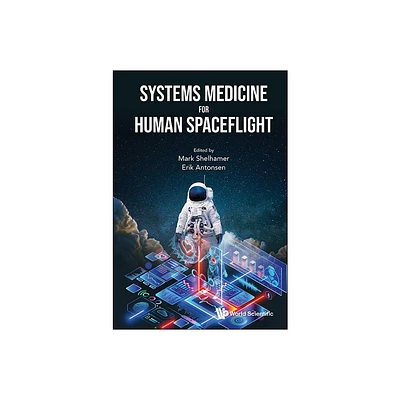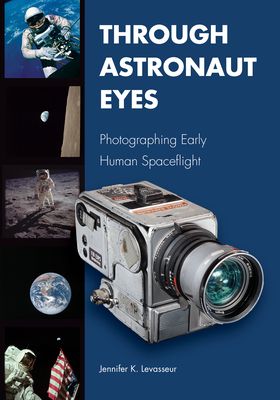Home
Neuroscience Research Short-Duration Human Spaceflight
Loading Inventory...
Barnes and Noble
Neuroscience Research Short-Duration Human Spaceflight
Current price: $150.00


Barnes and Noble
Neuroscience Research Short-Duration Human Spaceflight
Current price: $150.00
Loading Inventory...
Size: Paperback
*Product Information may vary - to confirm product availability, pricing, and additional information please contact Barnes and Noble
Neuroscience Research in Short-duration Human Spaceflight
encapsulates a groundbreaking neuroscience portfolio conducted during the Axiom Mission 2 in May 2023, offering an examination of the effects of short-duration orbital spaceflight on aspects of the human brain. Addressing limitations in existing literature, the research includes astronauts of diverse ages, genders, and ethnic backgrounds, broadening the understanding of the impact of spaceflight on human physiology.
A significant aspect of the suite of studies is the validation of two novel devices providing unprecedented information about the pupillary light reflex and neuroimaging in microgravity: automated pupillometry and functional near-infrared spectroscopy. The portfolio extends to explore spaceflight-associated neuro-ocular syndrome, offering valuable contributions to the evolving field of space medicine. Furthermore, the research delves into the utilization of electroencephalography to monitor brain activity, acknowledging its potential in assessing cognitive health, stress levels, and mental workload in real time. Despite promising prospects, challenges in electroencephalography system adaptability within the International Space Station environment are highlighted, emphasizing the need for specialized design considerations. In addition, analysis is extended into the molecular biomarkers through minimally invasive blood monitoring. This book represents a pivotal advancement in space neuroscience, laying the foundation for safer space travel and fostering the development of monitoring tools crucial to observing adverse changes and potentially developing countermeasures that can aid in the establishment of a permanent human presence beyond Earth.
encapsulates a groundbreaking neuroscience portfolio conducted during the Axiom Mission 2 in May 2023, offering an examination of the effects of short-duration orbital spaceflight on aspects of the human brain. Addressing limitations in existing literature, the research includes astronauts of diverse ages, genders, and ethnic backgrounds, broadening the understanding of the impact of spaceflight on human physiology.
A significant aspect of the suite of studies is the validation of two novel devices providing unprecedented information about the pupillary light reflex and neuroimaging in microgravity: automated pupillometry and functional near-infrared spectroscopy. The portfolio extends to explore spaceflight-associated neuro-ocular syndrome, offering valuable contributions to the evolving field of space medicine. Furthermore, the research delves into the utilization of electroencephalography to monitor brain activity, acknowledging its potential in assessing cognitive health, stress levels, and mental workload in real time. Despite promising prospects, challenges in electroencephalography system adaptability within the International Space Station environment are highlighted, emphasizing the need for specialized design considerations. In addition, analysis is extended into the molecular biomarkers through minimally invasive blood monitoring. This book represents a pivotal advancement in space neuroscience, laying the foundation for safer space travel and fostering the development of monitoring tools crucial to observing adverse changes and potentially developing countermeasures that can aid in the establishment of a permanent human presence beyond Earth.


















